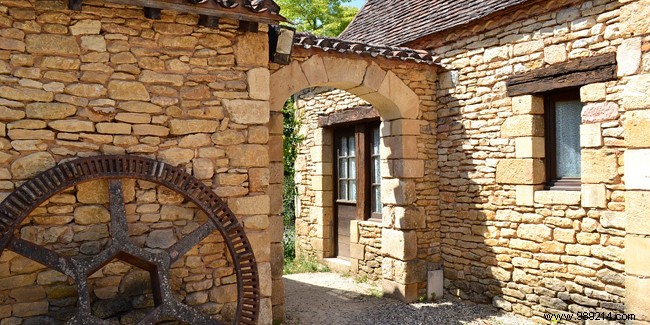
When a person sells a life annuity property , it is called the annuitant . The purchaser is called the debitholder .The principle for the annuitant is to sell this property to the annuitant by receiving a so-called life annuity which will end on the death of the seller. The annuitant, if he wishes, can occupy his accommodation until the end of his days. In this case, we speak of occupied life annuity . If he leaves the accommodation empty of any occupation, the operation is then called a free life annuity and the annuitant can reside there as soon as the deed is signed with the notary. Here is everything you need to know about the sale of real estate through free or occupied life annuity.
The life annuity is a contract signed by the annuitant and the annuitant for the transfer of real estate the definitive transmission of which will only be possible upon the death of the seller. From the signing of this contract, the purchaser must pay a sum defined between the two parts monthly, quarterly or annually until the death of the annuitant. This sum is called the life annuity . During the first payment, it may have been concluded in the agreement that there is a payment of a large sum at the signing of the deed of sale. This sum is called the bouquet . There are two forms of life annuity:
The life annuity fixed between the two parties is fixed according to several criteria which are:
If the property is defined as occupied life annuity , its property value decreases, because the purchaser is deprived of the right of habitation and use for the purchaser.
For the seller, the life annuity is advantageous , because he can continue to live at home if it is a busy life annuity while receiving fixed income from the signing. He also realizes other savings with the development work and the property tax which are mainly the responsibility of the debtor. It also benefits from attractive tax advantages.
For the seller, the life annuity allows him to buy a property at a lower cost without having to apply for a mortgage. He can also build up a wealth while benefiting from an attractive tax framework.
The taxation of the life annuity is relaxed, because the bouquet is not subject to income tax . Only the life annuity is taxable, but benefits from a deduction varying according to the age of the annuitant . This reduction is:
Good to know :the property tax as well as the work of fitting out the house or voted by the trustee of the building if the property is an apartment, are the responsibility of the purchaser if the seller occupies the property who will only have to pay the tax housing when it exists. If the life annuity is free, it is the purchaser who also pays the housing tax.
The sale of a life annuity is considered a traditional sale building and both parties must pass a deed before a notary . The notary will also be able to guide the two parties to determine the amount of the bouquet and that of the annuity. He informs the two parties who can then negotiate between them the price indicated.
Selling a life annuity is a good deal for both parties . The annuitant receives a lifetime annuity and the annuitant acquires real estate by paying a price staggered over a fairly long period. The duration can be a hazard for the beneficiary. On the other hand, you should know that if the death of the annuitant occurs within 20 days of the signing of the deed, the sale is purely and simply canceled.
During a life annuity, we can consider that the seller makes a loan to the buyer for the acquisition of real estate, either for the total price of the property if there is only an annuity or for a party if there is a bouquet. In this case, the notary takes a seller's privilege which is a form of mortgage on the property sold. This precaution allows the seller to be able to recover the property in the event of non-payment from the purchaser. If the life annuity concerns the both heads of the selling couple , then the annuity is transferred to the surviving spouse and the debt is not extinguished until the death of the survivor. As the property is considered sold, the heirs will not be able to claim inheritance on this property. If they are direct children, it is advisable for the annuitant(s) to explain the situation and their motivations to them while they are still alive. The main decision is often to protect oneself from want.
The life annuity sale of real estate is subject to the same tax regime as a traditional sale. Thus, if it is a main residence , it is totally exempt from capital gains . If it is another residence, it may be subject to real estate capital gains if the property has been held for a few years.
For a property sold as a life annuity, so-called "notary fees » apply. They are from:
If you are interested in life annuity, you can use an online comparator free. You will receive proposals from expert professionals in the life annuity without having to commit yourself. You can study these files and choose one, if you are interested in this form of real estate acquisition or sale.